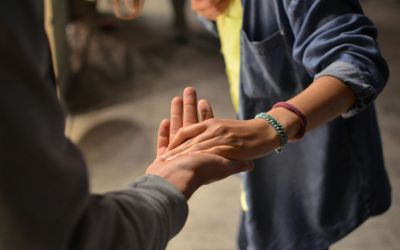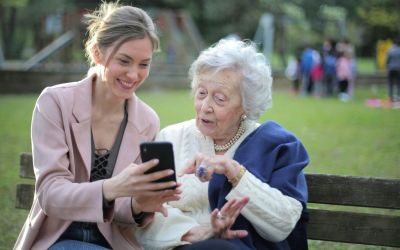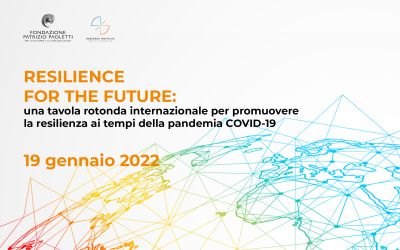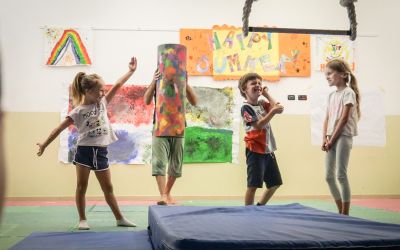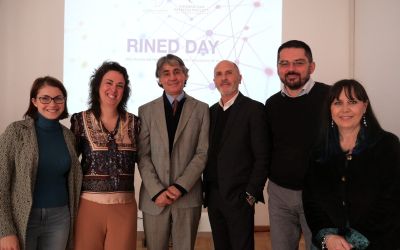
Rischi e potenziali del cervello degli adolescenti
Intervista a Tania Di Giuseppe, psicoterapeuta e responsabile ricerca psico-pedagogica
Cosa accade nel cervello degli adolescenti? Quali sono le novità dalla ricerca e dai progetti di Fondazione Patrizio Paoletti? Tania Di Giuseppe, psicologa, psicoterapeuta e responsabile dell’area di ricerca psicopedagogica della Fondazione lo racconta in questa intervista.
INDICE
ToggleCosa accade nel cervello degli adolescenti?
Una domanda frequente di genitori ed insegnanti alle prese con gli adolescenti è: Cosa accade nelle menti di questi ragazzi? Come mai i loro comportamenti sono tanto particolari e come essere loro d’aiuto?
È importante che i genitori e gli educatori, insegnanti di adolescenti, sappiano che le aree del cervello che si sviluppano per ultime sono quelle deputate alla regolazione emozionale.
Pensate, solo dopo i vent’anni si completa lo sviluppo delle funzioni esecutiveL'espressione 'funzioni esecutive' si riferisce a un insieme... Leggi. Stiamo parlando di quelle zone del cervello deputate a specifiche e importantissime funzioni come la capacità di decidere, di auto-calmarsi, di intendere gli effetti delle proprie azioni su di sé e gli altri, la capacità di riconoscere, accogliere e gestire le proprie emozioniLe emozioni sono risposte psicofisiologiche complesse che ci... Leggi, di individuare le priorità, di organizzare il pensiero. Tutte queste abilità non sono ancora completamente sviluppate negli adolescenti.
Per questa motivazioneLa motivazione: un punto di vista scientifico La motivazione... Leggi i nostri ragazzi fanno esperienza di una vera e propria amplificazione delle emozioni e delle sensazioni interiori. Il risultato è che vivono le esperienze con una grande intensità emotiva che appare ai nostri occhi a volte incomprensibile.
Il ruolo degli adulti come guide emotive
Cosa può fare un adulto di fronte a questa intensità emotiva?
Un adolescente in preda a forti emozioni come rabbiaLa rabbia rappresenta una delle emozioni primarie più poten... Leggi, tristezzaLa tristezza è un'emozione fondamentale che rappresenta una... Leggi o euforiaL'euforia è uno stato emotivo caratterizzato da un'intensa ... Leggi non ha strumenti adeguati per ragionare, valutare e prendersi cura di se stesso. Ha bisogno di un adulto, consapevole e autorevole, che sia capace di ascoltare, rimanere calmo e presente nel qui e ora, per poterlo aiutare a comprendersi, a capirsi, a gestire quel mare in tempesta che sono le sue emozioni.
Quando la comprensione e l’orientamento delle emozioni non è presente nella vita dei ragazzi e la comunità degli adulti disattende questi bisogni, ci troviamo di fronte a una sofferenza che si manifesta con comportamenti di autolesionismo, suicidio, violenza apparentemente incomprensibili.
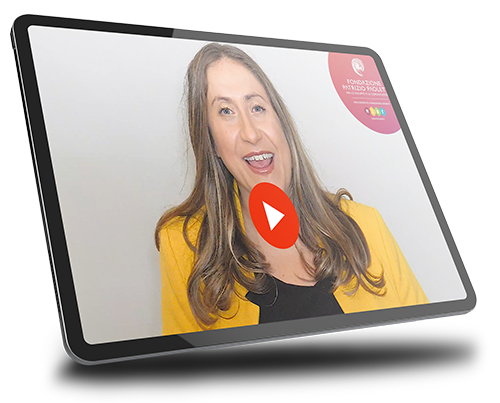
CRESCERE UN EROE, NON UN RIBELLE
Una video-lezione per orientarti nell’adolescenza di tuo figlio e rafforzare il legame con lui in questa fase di grandi trasformazioni.
"*" indica i campi obbligatori
Questo succede perché non conosciamo ciò che accade nella mente dei ragazzi e questo vuoto di sapere non ci permette di riconoscere i segnali di prevenzione del disagio e di acquisire, quindi, gli strumenti che ci occorrono per aiutare gli adolescenti a crescere.
Attraverso un dialogo empatico, attraverso l’uso delle regole, il ragazzo adolescente deve essere accompagnato a diventare autonomo nel gestire le sue emozioni comprendendo gli effetti dei comportamenti che quelle emozioni possono spingerlo a compiere.
Emozioni e crescita: un equilibrio da costruire
Qual è il valore delle emozioni in questa fase?
Allo stesso tempo, l’adulto deve ricordare ai ragazzi che le emozioni hanno un ruolo importantissimo nella nostra vita: se riconosciute e gestite possono donare significato e vitalità durante tutto l’arco della nostra esistenza. Infatti, l’adolescenza è una fase della vita caratterizzata da una straordinaria vitalità e da un desiderio intenso di esplorazione, e può essere allo stesso tempo, se il ragazzo non è sottoposto ad un allenamento emotivo, un momento di vulnerabilitàLa vulnerabilità è uno stato emotivo che si verifica quand... Leggi.
Il focus della ricerca neuropsicopedagogica di Fondazione Patrizio Paoletti ci ricorda che proprio in questa fase di vita possiamo fare moltissimo, riprendendo come adulti il nostro ruolo di esempio e guida per i nostri ragazzi. Ricordiamo che durante l’adolescenza è presente lo sviluppo del pensiero astratto e concettuale, per questo c’è un ampliamento della consapevolezza che permette ai ragazzi di poter accedere a nuove domande profonde sul senso della vita e su se stessi.
Il ruolo della pedagogia, della formazione e dell’ambiente
Come possono supportare i ragazzi la ricerca scientifica e i progetti di Fondazione Patrizio Paoletti?
Noi adulti possiamo e dobbiamo accompagnare i nostri ragazzi a trovare un più profondo dialogo con se stessi, con la propria progettualità, con i propri sogni e desideri e invitarli a dedicare un tempo alla pianificazione di quelle azioni che li renderanno reali
Con i progetti di formazione e ricerca di Fondazione Patrizio Paoletti ci focalizziamo sullo studio di impatto e processo di quei metodi e tecniche che permettono agli adulti di riscoprire il proprio ruolo di allenatori emotivi (come direbbe John Gottman), e attraverso la messa a punto di training ad hoc basati sui i migliori saperi scientifici come il Modello Sferico della CoscienzaLa coscienza è uno dei temi più misteriosi e affascinanti ... Leggi e la Pedagogia per il Terzo MillennioPedagogia per il Terzo Millennio (PTM) è un metodo interdis... Leggi (PTM) aiutiamo i ragazzi a conoscersi, a gestire il proprio mondo interiore per scoprire i propri talenti e vivere con un maggiore senso di umanità comune.
I progetti psicopedagogici di Fondazione Patrizio Paoletti coinvolgono adolescenti che vivono in ambienti diversi: dalla scuola ai contesti di emergenza e alle carceri minorili. Che ruolo giocano per questi ragazzi gli ambienti esteriori e cosa significa costruire un ambiente interiore che supporti la crescita sana?
Questa domanda richiederebbe una trattazione ad hoc per ciascun ambiente e contesto citato, poiché le diverse situazioni sono specifiche e molto complesse. Possiamo però semplificare al massimo mettendo in evidenza che un ambiente interiore che supporti una crescita sana per la PTM si riferisce ad un processo educativo molto preciso: creare una strutturazione interna di riferimenti, significati e contenuti che permetta ai nostri ragazzi di imparare da tutto e da ogni cosa, significa implementare in loro la rivalutazione cognitiva dell’esperienza in modo proattivo utile a vantaggio non solo personale ma a vantaggio dell’insieme a cui si appartiene.
Questo speciale ambiente interiore, che è un modello a tendere, è potenzialmente possibile grazie allo sforzo di coloro che sono abitanti dell’ambiente esterno, di quello spazio fisico abitato da insegnanti, genitori, educatori, tutti coloro che in quanto adulti hanno il ruolo di guida nei confronti delle nuove generazioni e costituiscono i contesti e le circostanze dell’esperienza dei nostri ragazzi.
Ambiente interno e ambiente esterno si corrispondono in uno specchio virtuoso in cui più l’ambiente esterno è organizzato da adulti consapevoli attraverso stimoli educativi che potenziano la capacità di trasformare le avversità in opportunità di crescita, più i nostri ragazzi – che sono coloro che vivono quell’ambiente: scuola, casa, comunità penitenziaria – potranno svilupparsi, crescere ed evolvere potendosi conoscere non solo per ciò che sono e per ciò che sono stati (pensiamo allo stigmaLo stigma verso la salute mentale è definibile come il preg... Leggi della pena per i minori con storie di reati), ma soprattutto per ciò che possono diventare: più consapevoli e capaci di dare nuove risposte alla vita.
Da qui la nostra grandissima attenzioneL'attenzione è un processo cognitivo complesso e multidimen... Leggi con la ricerca alla formazione degli adulti, insegnanti, genitori, educatori, care-giver, tutti coloro che sono impegnati nella complessa e affascinante sfida dell’educarsi per educare.
Le sfide attuali: salute mentale post-pandemia
Quali sono le ultime novità dalla ricerca psicopedagogica di Fondazione Patrizio Paoletti, i progetti in corso, le pubblicazioni scientifiche per approfondire?
Le principali agenzie educative come la scuola e la famiglia sono state impattate massivamente dalla pandemia di COVID-19, tanto che le ricerche più recenti nell’ambito del benessere ci dicono che siamo chiamati a fronteggiare una nuova emergenza: il peggioramento della salute mentaleCosa si intende per salute mentale? Secondo l'Organizzazione... Leggi degli adolescenti e degli adulti. Ci troviamo difronte ad una nuova vera e propria emergenza educativaIl termine ‘emergenza educativa’ si riferisce a una situ... Leggi e sociale. Per queste ragioni la promozione di risorse positive individuali e interpersonali che coinvolgano non solo i ragazzi, ma l’intera comunità educante è diventata prioritaria nelle nostre attività negli ultimi tre anni.
Dal 2022 ad oggi abbiamo già raggiunto più di 3.500 tra adolescenti, insegnanti e genitori nel mondo della scuola attraverso training educativi specifici che ci permettono di indagare e monitorare l’impatto sui ragazzi e gli adulti, di alcuni costrutti che ci stanno particolarmente a cuoreIl cuore è un organo fondamentale per la vita, responsabile... Leggi come la PrefigurazioneLa prefigurazione, nella sua essenza psicologica, è la stra... Leggi, il SilenzioIl silenzio, spesso trascurato nella frenesia della vita mod... Leggi, l’Auto-compassione e la capacità di trasformare la difficoltà in occasioni di crescita. Le analisi dei risultati sono in piena attività, così come le pubblicazioni in lavorazione.
I progetti di formazione e ricerca ci vedono coinvolti nel rispondere a questa emergenza e la nostra sfida come ente di ricerca è di rendere i nostri training sempre più efficaci nella promozione del benessere e delle principali abilità che occorrono ai nostri ragazzi e a insegnanti e genitori per fronteggiare le complessità del presente. Questo è possibile sia attraverso una seria e rigorosa misurazione degli effetti dei training proposti sui ragazzi e gli adulti sia attraverso la capacità di portare innovazione nei metodi e nelle tecniche proposte, frutto delle esperienze e dei feedback raccolti.
Vorrei concludere questa intervista riportando in anteprima una tra le tantissime testimonianze significative dei ragazzi che stiamo analizzando, sull’esperienza formativa di Prefigurare il futuro, tra i nostri progetti di punta dedicato alla promozione della resilienzaCosa si intende per resilienza? Secondo l'American Psycholog... Leggi nella comunità scolastica:
Prima di partecipare a questo progetto, io non pensavo che l’essere umano potesse gestirsi, gestire se stesso, le sue emozioni… invece dopo aver partecipato a questo percorso ho capito una cosa molto importante: noi possiamo esercitare molto potere su noi stessi e possiamo migliorarci, migliorare le nostre emozioni, migliorare i nostri obiettivi e all’inizio in realtà non credevo fosse possibile questo!
Questa testimonianza di un ragazzo di 14 anni, insieme ad altri feedback sul progetto, verranno discussi nei nostri prossimi articoli sulla mente adolescente e i suoi potenziali a beneficio anche della comunità.
Qostenere i giovani significa costruire il futuro. Aiutaci a portare formazione e ascolto dove ce n’è più bisogno.
Sii parte del cambiamento. Condividere responsabilmente contenuti è un gesto che significa sostenibilità
Alleniamo l'intelligenza emotivaLa prima definizione di Intelligenza Emotiva in quanto tale ... Leggi: che emozione ti suscita questo articolo?
